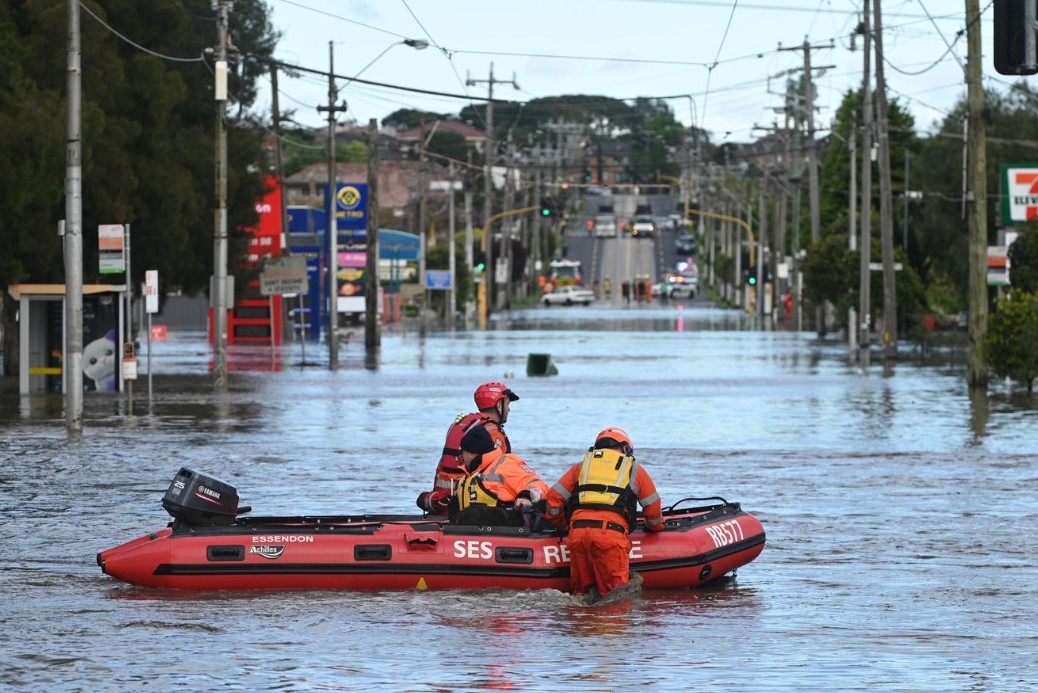
Civil protection: what to do during a flood or if a inundation is imminent
In the event of a flood or inundation, the Civil Protection will intervene and work for your safety. In the meantime, put safety first. Don’t take any chances. Act quickly if you see water rising
Flood or inundation, first rule: find a high place
Floods and flash floods can happen quickly.
If you see the water rising, don’t wait for official warnings.
Head to higher ground and stay away from floodwaters.
Stay out of flood or flood water
Never attempt to walk, swim or drive through floodwater.
Many flood fatalities are caused by people attempting to cross the water.
You have no idea how deep the water is, even if you know where it is.
Below the surface of the water there may be many dangers, dragged there by the fury of the water.
Also, always assume that flood water is contaminated with agricultural runoff, chemicals and sewage.
Contaminated flood water can make you sick.
Be sure to wash your hands, clothes and belongings after contact with flood waters.
It’s not rain or river water: it’s the fruit of what the water has encountered before reaching you.
If flooding or inundation is possible:
- Stay informed in an emergency. Listen to the radio or follow your Civil Protection Emergency Management Group online, if the internet still works. Also consider that many civil protection groups have an automatic telephone communication system. They will certainly provide you with information on what to do based on their experience and professionalism.
- Prepare to evacuate and keep a bag nearby. At the end of this article you will find more information on emergency backpacks. Listen to the emergency services and local civil protection authorities. Follow all evacuation instructions for your area. Self-evacuate if you feel unsafe, but always with safety as a priority.
- Move pets to a safe location and move livestock to higher ground. If you must travel, bring your pets with you. If it’s not safe for you, it’s not safe for them.
- Turn off water, electricity and gas if advised.
- Move valuable and dangerous items as high above the floor as possible. This includes electrical equipment and chemicals. Use airtight containers to store important items. The arrival of water will cause problems due to electricity.
- Lift curtains, carpets and bedding off the floor: an evacuation, also due to stress and anxiety, is not simplified by carpets and other objects on the floor.
- Check your neighbors and anyone who may need your help: solidarity is as important as listening to directives. Feedback in this sense will facilitate the intervention of rescuers.
Read Also
Emergency Live Even More…Live: Download The New Free App Of Your Newspaper For IOS And Android
Earthquake: The Difference Between Magnitude And Intensity
Earthquakes: The Difference Between The Richter Scale And The Mercalli Scale
Difference Between Earthquake, Aftershock, Foreshock And Mainshock
Major Emergencies And Panic Management: What To Do And What NOT To Do During And After An Earthquake
Earthquake And Loss Of Control: Psychologist Explains The Psychological Risks Of An Earthquake
Civil Protection Mobile Column In Italy: What It Is And When It Is Activated
Earthquakes And Ruins: How Does An USAR Rescuer Operates? – Brief Interview To Nicola Bortoli
Earthquakes And Natural Disasters: What Do We Mean When We Talk About The ‘Triangle Of Life’?
Earthquake Bag, The Essential Emergency Kit In Case Of Disasters: VIDEO
Disaster Emergency Kit: how to realize it
Earthquake Bag : What To Include In Your Grab & Go Emergency Kit
How Unprepared Are You For An Earthquake?
Emergency Backpacks: How To Provide A Proper Maintenance? Video And Tips
Earthquake and How Jordanian hotels manage safety and security
PTSD: First responders find themselves into Daniel artworks
Emergency preparedness for our pets
Difference Between Wave And Shaking Earthquake. Which Does More Damage?
Disaster Psychology: Meaning, Areas, Applications, Training
Medicine Of Major Emergencies And Disasters: Strategies, Logistics, Tools, Triage


